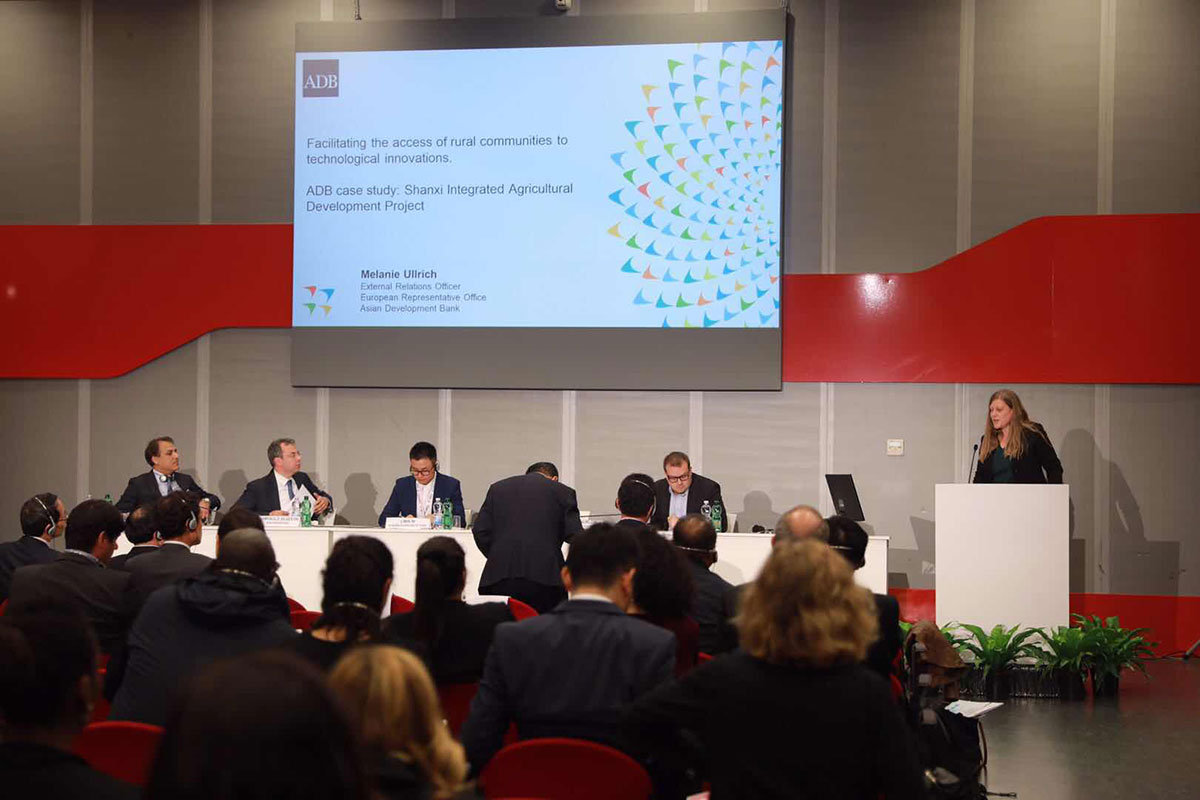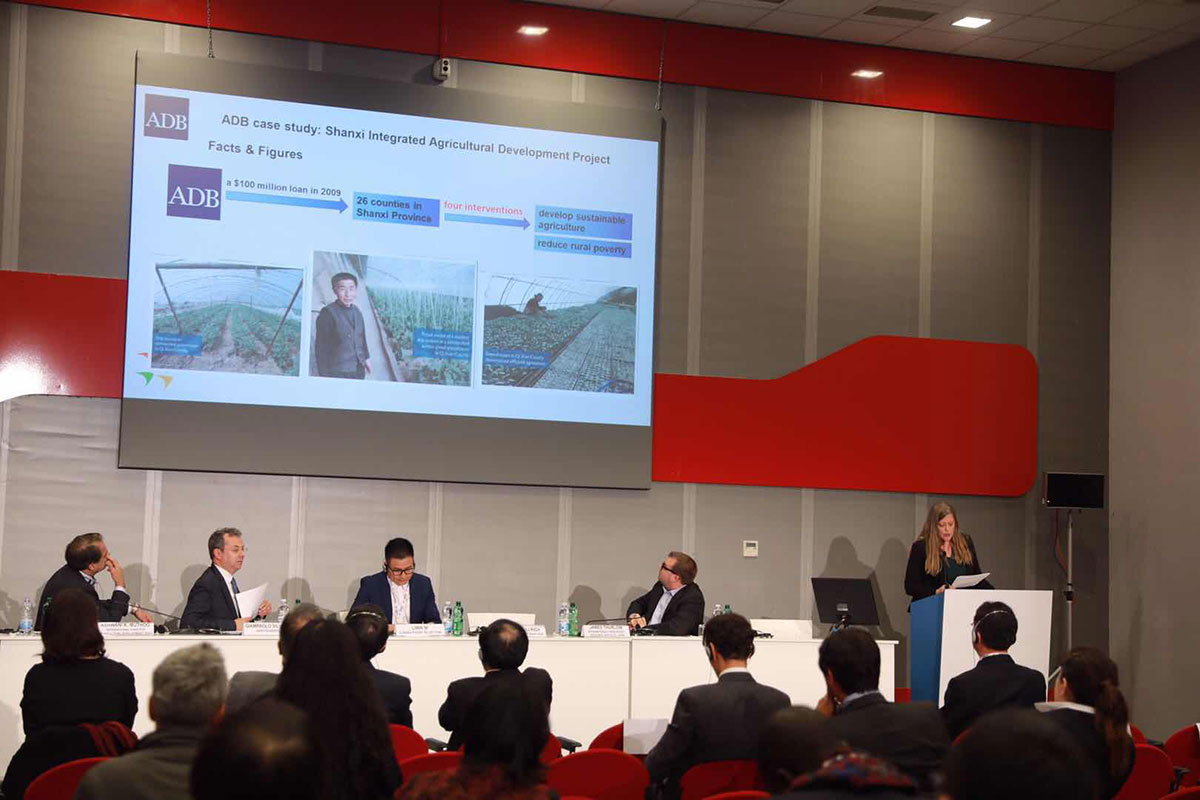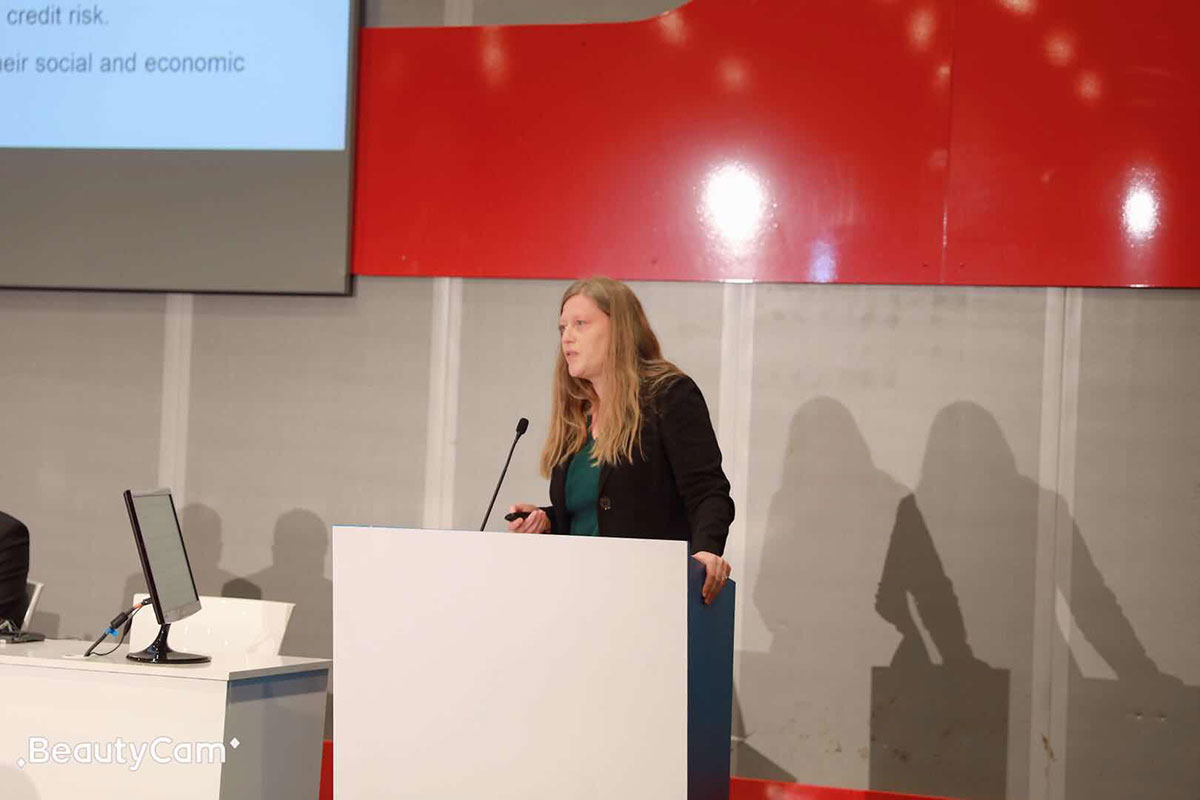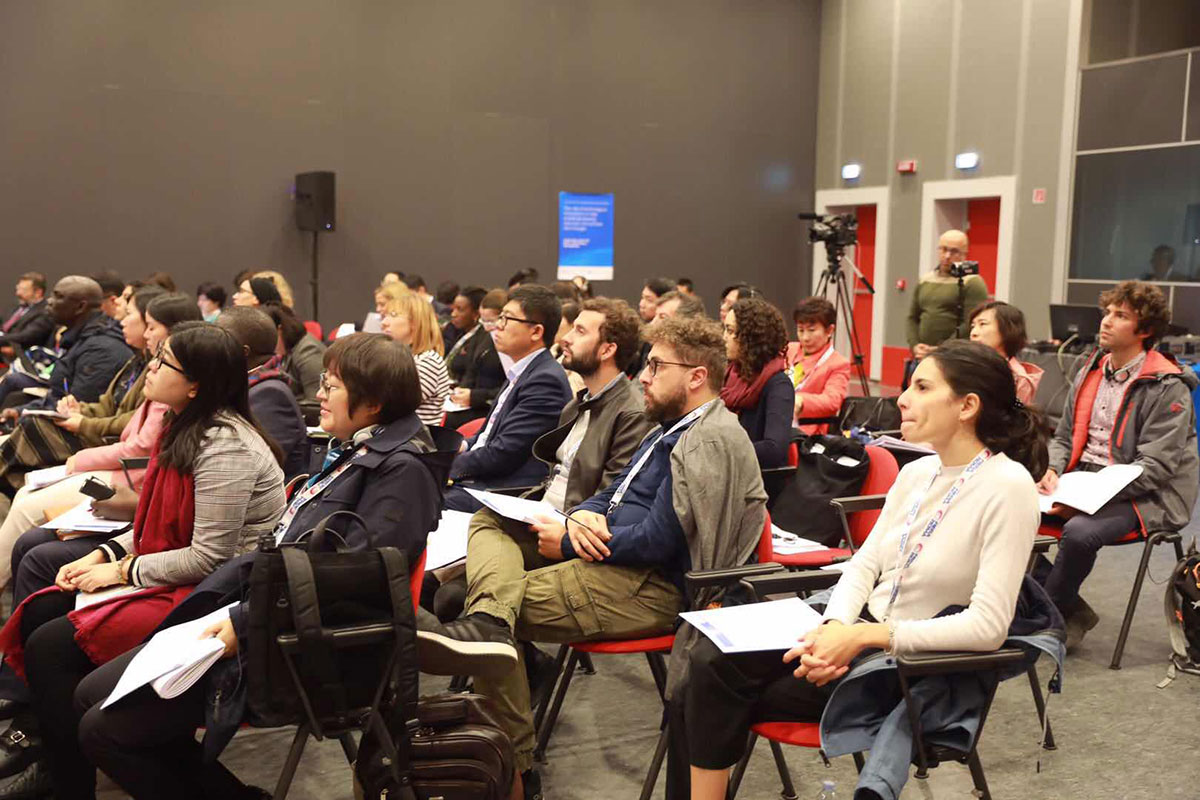| 14.00 – 14.20 | Opening Remarks:
- Mr Amir Abdulla, Deputy Executive Director, WFP – On behalf of RBAs
- Mr. Gengsheng Xia, Vice Minister, the State Council Leading Group Office of Poverty Alleviation and Development (LGOP), the PRC
|
| 14.20 – 14.40 | Result Release of the Global Solicitation and Challenge Prize on Best Poverty Reduction Practices
Moderator:
Mr. Lisheng XUE, Vice Editor-in-Chief, CIIC
3-minute video presenting the result of selected case studies |
| 14.40 – 15.45 | Session 1 – Multi Stakeholders Roundtable: Facilitating The Access Of Rural Communities To Technological Innovations
Moderator:
Ashwani K. Muthoo, Director of the Global Engagement and Multilateral Relations Division, IFAD
Internet + Poverty Reduction: An effective approach for targeted poverty alleviation through ICTs.
Mr. Limin Ni, Director of Alibaba Poverty Relief Fund, Alibaba Group
ADB case of Shanxi Integrated Agricultural Development Project
Ms. Melanie Ullrich, External Relations Officer, European Representative Office, Asian Development Bank (ADB)
Digitalization in the Field: IT tools to improve agricultural productivity and human development in rural areas
Mr Giampaolo Silvestri, Secretary-General, AVSI Foundation
Food Policy Analysis in the Digital Age: The Agricultural Investment Data Analyzer
James Thurlow, Senior Research Fellow, International Food Policy Research Institute (IFPRI)
Q&A session |
| 15.45 – 16.15 | Coffee Break |
| 16.15 – 17.15 | Session 2 – Case Studies: How Technological Innovations Helped Accelerating Poverty Reduction And Eradicating Hunger
Moderator:
Zuo Changsheng, Director General, IPRCC
UN Decade of Family Farming
Mr Luis Fernando Ceciliano Piedra, Alternate Permanent Representative, Republic of Costa Rica to FAO, IFAD and WFP
The role of ICTs and innovation in the Rural Women’s Economic Empowerment Partnership – a joint initiative between FAO, IFAD, UN Women and WFP, which takes place in Ethiopia, Guatemala, Kyrgyzstan, Liberia, Nepal, Niger, and Rwanda
Ms Azzurra Chiarini, Global Coordinator, Joint Programme “Accelerating Progress towards the Economic Empowerment of Rural Women”
Ecosystem rehabilitation for poverty alleviation: Model of Ke’erqin Zuoyi Houqi (County), Inner Mongolia
Mr. Zhiwei HE, County Mayor, Kezuo Houqi (County), Tongliao City, Inner Mongolia, the PRC
Poverty reduction through charitable vocational education: the story of BN Vocational School
Ms Li YAO, Founder and Chairperson of BN Vocational School, the PRC
Q&A session |
| 17.15 – 17.30 | Conclusions and Closing Remarks
Mr Shengyao Tang, Director, Office of South-South and Triangular Cooperation, FAO – On behalf of RBAs |






